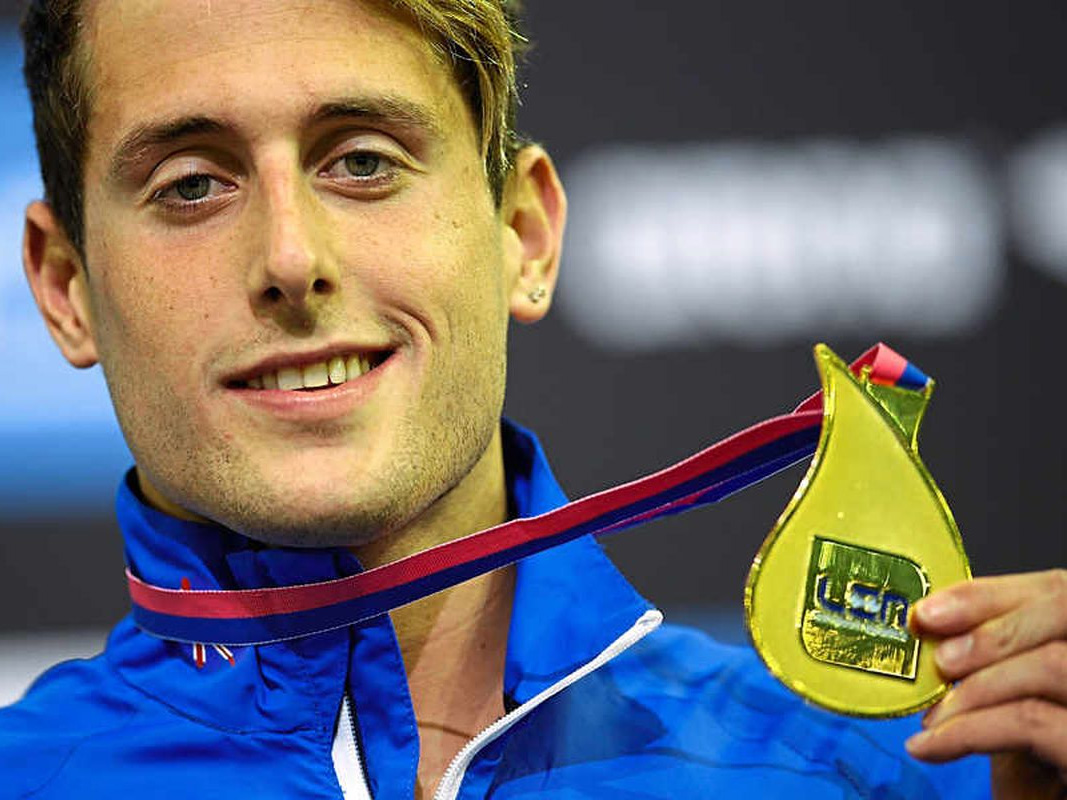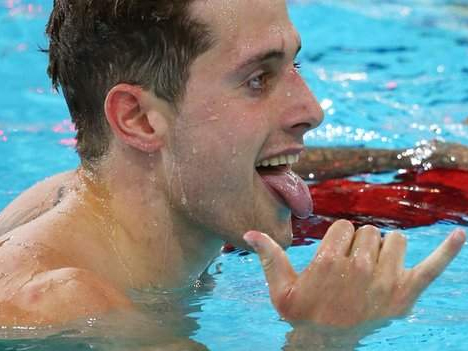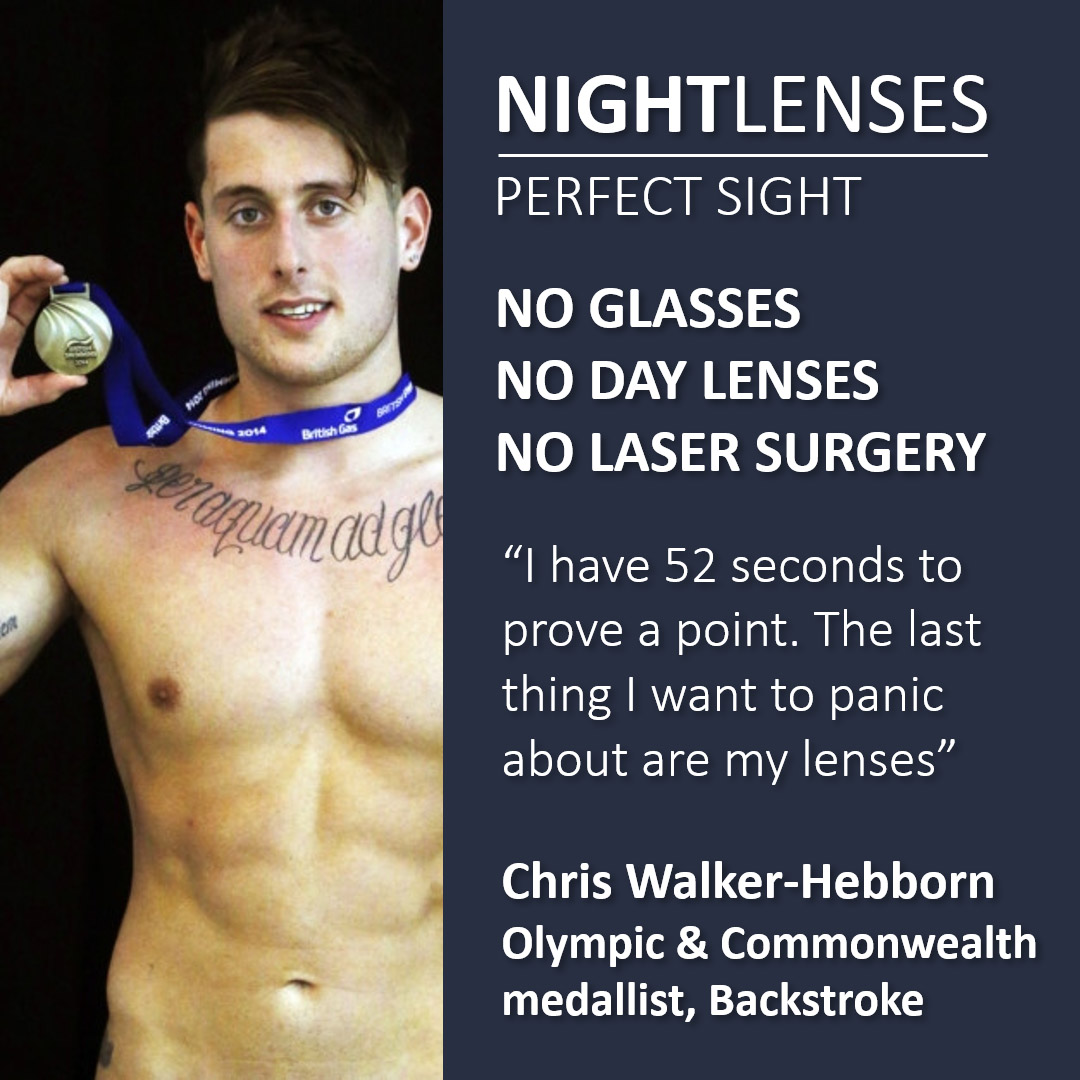Chris Walker-Hebborn

Night lenses changed my life | Chris Walker-Hebborn | Olympic swimmer
Q: Looking forward to conversing with you, Chris. Your achievements speak volumes – clinching the 100m backstroke gold at the 2014 Commonwealth Games and securing a silver with the Medley team at the 2016 Olympics are undoubtedly remarkable highlights. Watching that Olympic race, which coincided with Phelps’ final spectacle, added an extra layer of drama. Could you share your reflections on that race, Chris? With a formidable team by your side, what was the atmosphere like?
A: It was a truly extraordinary experience, to say the least. The concluding event of the meet, and the arena was pulsating with energy. You could sense that a momentous showdown was imminent, and the ambiance was electric. It evolved into an intense race, and they managed to clinch victory, nudging us into second place.
Q: You’ve encountered standout moments in your career, including that memorable Commonwealth gold. How did that victory resonate with you?
A: When asked about my cherished memory, my mind invariably drifts to 2014 – the year of my inaugural gold medal. It was my first taste of gold on the senior stage, an arena distinctly different from my robust junior journey. Securing a couple of golds and setting a record that endures to this day fills me with immense pride. And to replicate this feat at the European stage, amassing additional gold medals, stands as the zenith of my career. Despite the prestige associated with an Olympic medal, silver doesn’t quite compare!
Q: Interestingly, I revisited that race before this dialogue. The commentator seemed taken aback by your surge, yet you delivered…
A: Those commentators – be it Helen Skelton, Steve Parrish, or Sharon Davis – they closely track your evolution. Year after year, through thick and thin, you engage in conversations with them. I remember my post-race chat with Sharon Davis, and her exclamation of ‘finally!’ I retorted, “You have no idea!” That juncture marked the beginning of a more promising phase in my journey. The pursuit of excellence persisted, even as I neared the twilight of my career.
Q: When did you dive into the world of swimming?
A: Swimming entered my life at an early stage, as my parents deemed it an essential life skill. While I dabbled in various sports, swimming resonated with me in a unique way. Swimming monopolizes a substantial chunk of time, with limited competitive events. My transition into the national arena occurred at 15. The Offshore Programme, a two-year scholarship in Australia, selected six aspirants annually. I wasn’t in contention for the top six slots back then. However, many youngsters were disinclined to relocate at such a tender age. My mother implored me – “Don’t let this opportunity slip away!” I embarked on the Australian journey, and surprisingly, that’s when my trajectory skyrocketed. Emerging as the European and World Junior Champ was an unexpected turn of events, to put it mildly.
Q: Our focus is on night lenses, leading us to your eyesight. Around 15 or 16, did your vision start becoming problematic and affect you?
A: I was well aware that my eyesight wasn’t impeccable, yet I was stubborn about donning glasses. I grew accustomed to the blurred reality. Squinting became my go-to coping mechanism. My eyesight’s inadequacy manifested when I commenced driving. The inability to decipher road signs or license plates was a glaring sign. I came to the realization that glasses were necessary, but I harbored a certain aversion towards them. Wearing glasses while swimming was a non-starter, and this dilemma led me to embrace night lenses as a solution.
Q: Did you initially experiment with day contact lenses? Did prescription goggles come into play?
A: Prescription goggles did exist, but they weren’t particularly enticing. They weren’t exactly fashionable, and I couldn’t envision myself racing while adorned in them – particularly when the spotlight was on, including television coverage. Glasses were off the table as well, leaving day lenses as the solitary option. Any swimmer familiar with lenses understands the propensity for them to fold, dislodge, or even become trapped under the eyelid. It was hardly an ideal scenario. Training with them was out of the question. I’d insert them moments before a race, solely to glimpse the scoreboard and flags, but it hardly qualified as a robust solution. Losing one was a recurring nuisance, and racing with just a single lens in was anything but advantageous.
Q: Many top-tier athletes stress the importance of precision and meticulousness in their preparation for peak performance. Every aspect needs to align perfectly when you’re vying against the world’s best. Did lens-related issues ever disrupt your race preparation or performance?
A: Certainly, I could have discarded the lenses if they posed a hindrance. However, achieving my optimal performance necessitates a stress-free ambiance. I have a mere 52/53 seconds to make my mark, and the last thing I want to occupy my mind with is lens-related troubles. I distinctly recall several instances – not on the Olympic stage, fortunately. One incident that stands out occurred in France, an outdoor event that added complexity. Struggling to insert my lenses amid stress and fumbling, I found myself in the final of the 100m backstroke, pitted against Camille Lacourt, the reigning world champion. The competition was set on his turf, and I was determined to hold my ground. Ultimately, I raced without the lenses – a far from optimal scenario for executing precise starts. It wasn’t my best race by any means. I refrained from glancing at the boards, acutely aware that I had landed in second place. I avoided squinting, dreading the potential circulation of unflattering images.


Q: Have you encountered any issues with your lenses during a race?
A: Fortunately, as a backstroker, I’m spared from the intense velocity that front-facing swimmers experience during starts, which tends to dislodge goggles. Nevertheless, there was an instance during the semi-finals of the European championships that deserves mention. Post a tumble turn, I instinctively blinked, inadvertently trapping one of my lenses. It folded within my eye, rendering me unable to rectify the situation. Fortunately, I progressed to the finals and managed a commendable performance. Such minor inconveniences, intrinsic to day lenses and swimming, can be quite vexing.
Q: This leads us seamlessly to night lenses. Pop them in before bed, remove them upon waking, and relish impeccable vision without the need for glasses or contact lenses – a perfect fit for swimming, naturally. In retrospect, if you could journey back to your 15 or 16-year-old self, would opting for night lenses be a resounding choice? Do you believe they would have influenced your career trajectory?
A: Without a doubt, embracing night lenses at an earlier juncture would have simplified life immensely. Night lenses indeed constitute a paradigm shift. Wearing glasses entails its share of inconvenience. It necessitates a continuous presence, a perpetual appendage to achieve decent sight. I would have eagerly adopted night lenses sooner, had the opportunity been available. At present, I can’t envision my existence without them. Over the past five or six years, I’ve unburdened myself from glasses, and there’s no turning back. Night lenses are an invaluable asset.
Q: As an engaged father leading an active lifestyle, do you find night lenses advantageous beyond your athletic pursuits?
A: Absolutely. The convenience of legal driving without relying on glasses is invaluable. While glasses possess their merits, they don’t suit everyone. When I’m at the park, the reassurance of being able to spot my daughter amidst the crowd is heartening. It’s the small details that often escape notice until you make the transition. I’ve grown accustomed to the luxury of flawless vision every day. It has evolved into a necessity, an indispensable facet of my life. Once you’ve become accustomed to it, there’s no turning back.
Q: Has the thought of laser eye surgery ever crossed your mind?
A: Certainly, in the latter phase of my career, as my training regimen waned and I contemplated my retirement on my own terms. I had the opportunity to explore that avenue. However, my lazy eye condition posed a hurdle, rendering laser surgery impractical. This is when night lenses entered the picture, and at present, I can’t fathom my life without them.
Q: Why would you encourage young, talented, nearsighted swimmers to consider night lenses?
A: Initiating this journey at a youthful age undoubtedly holds immense merit. I harbor no regrets, as the option wasn’t at my disposal during my formative years. Embracing night lenses could potentially alter the trajectory of one’s career by alleviating concerns. It may sound a tad superficial, but visualizing podium snapshots, gauging your time sans your coach’s assistance – these elements contribute to a sense of assurance. The transition can render your path smoother. The most significant aspect is that my vision has remained stable over the past six years. My prescription hasn’t fluctuated. Acquiring fresh lenses each year has become an effortless process.
Q: You alluded to ‘game changer’ earlier. Many athletes echo this sentiment when discussing night lenses, mainly because it serves as a viable alternative to laser eye surgery. Laser surgery, while not permanent, entails potential risks like floaters that could compromise performance. For elite athletes, it equates to a hiatus from training and competition. Do you believe night lenses could be a game-changing asset for elite nearsighted athletes?
A: Undoubtedly. Night lenses circumvent the need for time away from the pool, whereas laser eye surgery constitutes a rather invasive procedure. I’m unaware of anyone who emerged unscathed within a week post-surgery. For many of us, especially within the realm of swimming, abstaining from pool sessions isn’t a feasible option. Missing a mere three sessions can adversely affect our form or impede our synchronization with the water – it’s a delicate equilibrium. Possessing a solution that’s pragmatic, viable, and all-encompassing, I fail to see how it wouldn’t qualify as a game changer. I’m not undermining the merits of laser eye surgery, but considering that my best friend’s father is undergoing his third round, I’m disinclined to tread that path.
Q: Night lenses are often hailed as optometry’s response to laser eye surgery. I extend my sincere gratitude for your time and this enlightening conversation. Your journey has been an inspiration to witness. It’s been an honor to revisit your two monumental races prior to this dialogue.
A: Thank you.
As our conversation concluded, Chris and I continued our interaction. I inquired about his clash with the French champion – the significance of projecting confidence in sports. Esteemed athletes like Adam Peaty, Phelps, and Bolt frequently emphasize the necessity of possessing unwavering certainty in their superiority, exuding that confidence to intimidate rivals. Chris presented an intriguing perspective:
Chris: In my perspective, poor eyesight was akin to Superman’s Achilles’ heel. When adorned with glasses, he transformed into Clark Kent – unremarkable, feeble, conquerable. Discard the glasses, and he metamorphoses into Superman. In my youthful days, a certain audacity regarding my ability was my driving force, a confidence pivotal for top-tier performance. I was adamant about not strutting in with an air of self-assurance only to grapple with contact lenses, inadvertently exposing a vulnerability. Such transparency was incompatible with projecting unwavering confidence. This principle resonates with all elite athletes. Triumph demands an unshakable belief in one’s supremacy, a sentiment that should radiate to adversaries. Night lenses shielded me from unveiling my vulnerability. They effectively transformed me into Superman! 😊
WATCH | Chris Walker-Hebborn
Watch this interview in full, filmed on Zoom.
